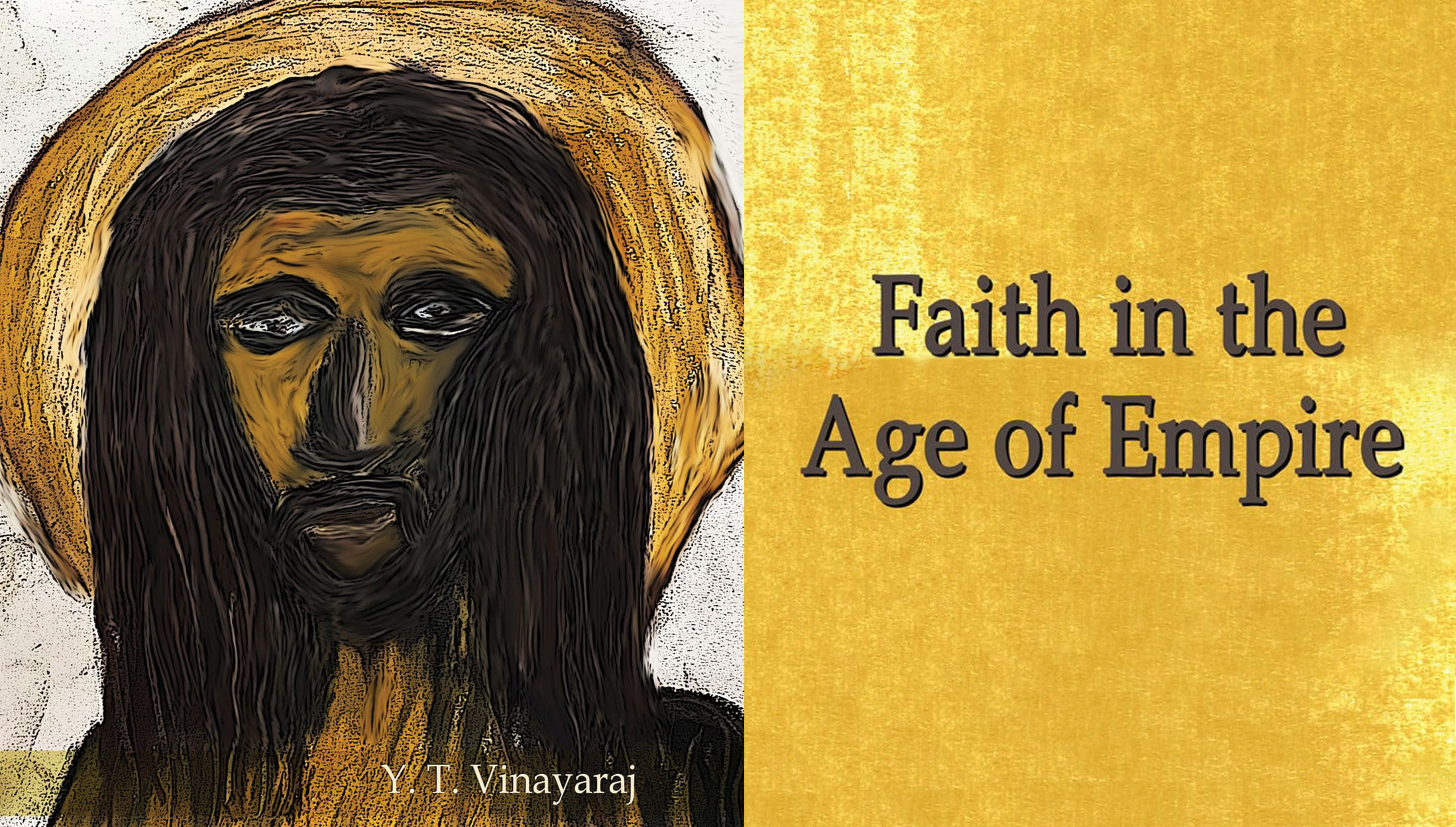Faith in the Age of Empire by Y. T. Vinayaraj will be launched soon.
Here is what reviewers have to say about the second book in the “Re-imagining Church as Event: Perspectives from the Margins” series:
What kind of God, church, Christ, human, sacrament and mission are we looking for? What kind of religion, politics and theology do we uphold? These are some of the fundamental questions that determine, design and reshape our faith, our spirituality and, of course, ourselves today.
In the Old Testament, faith facilitates the people of God to envision a radical life of freedom and justice in the context of slavery and exploitation. In the New Testament, the Jesus movement adds new meaning to the faith practices of God’s people. It envisions a radical civil society of justice and freedom and encounters the Roman system of subordination. Reclaiming the validity of Christian practices is the need of the hour in this age of globalising empire too in order to confront various forms of domination and fragmentation and to envision a world of hope and justice.
The book tries to initiate discussions on the imperial desires and designs deployed in Christian doctrines in the early period of the church to this day. It tries to discuss the need to reshape Christian theologies and doctrines in a postcolonial sensibility.
In order to get to the good news, it is important to develop an understanding of the bad news. This is what Vinayaraj does in this volume, guiding us from the oppressions of the Roman Empire, with which early Christians had to contend, to the medieval empires, European empires of colonial modernity, and the more current embodiments of empire in our own globalising age.
-Joerg Rieger
The specific empire in Vinayaraj’s sight is a religious one—Christianity, which spread over India along with the colonial expansion of the British Empire. With the mana of postcolonial spirituality, Vinayaraj shows that the Christian faith could be released from the colonial legacies of Christianity.
-Jione Havea


